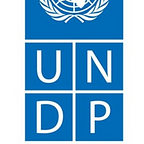Setting the pace for sound health care waste management in Ghana
The management of medical waste in Ghana has been an area of growing concern. Due to population growth and expansion of medical services, there have been an increase in the generation of hazardous waste in health facilities. The effect of these has been the exposure of healthcare workers, patients and nearby communities to toxic substances which pose threats to their health and the environment.
“Since 1998, we were using the incineration system which pollute the environment and expose our staff and patients to a lot of risks. But now, from the ongoing UNDP-GEF project, we have received 2 autoclave machines which sterilize our infectious waste and turn them into general waste”, Evans Asamoah, Medical Waste Project Focal Person at the Cape Coast Teaching Hospital revealed.
As narrated by Evans, health care waste is managed in many hospitals in Ghana through the use of incinerators, which burn waste at a low temperature, often emitting substances such as dioxins and furans. These substances have been identified as harmful pollutants under the Stockholm Convention on Persistent Organic Pollutants due to their tendency of causing diseases such as cancer and tuberculosis.
Thanks to funding from the Global Environment Facility (GEF), the United Nations Development Programmes (UNDP) in partnership with the Ministry of Health, Ghana Health Service, the World Health Organization and the NGO Health Care Without Harm, have been implementing the Medical Waste project since 2016, to promote the adoption of best practices in health care waste management.
The project has so far provided 5 autoclave technologies to 3 hospitals (Cape Coast Teaching Hospital, Koforidua Regional Hospital and Tegbi Health Centre), for treatment of health care waste before disposal. Each of these autoclave technologies have the capacity to treat 25kilograms of healthcare waste per treatment cycle (maximum 90 minutes).
The project has also built the capacity of over 600 health personnel from these hospitals on best waste management practices and on the operations and maintenance of the autoclaves. Two other hospitals, Winneba Trauma and Specialist Hospital, and the Greater Accra Regional Hospital also benefited from the trainings.
The efficient health care waste management systems established by the project in its pilot facilities has attracted interest from other countries in Africa, prompting the Government of Uganda led by a delegation from its Ministry of Health to come on a study tour to observe the interventions, to be presented as best practice for replication in Uganda.
“We have the autoclave technology, and this can be replicated in Uganda. Aside the knowledge on such technologies, we also learnt that we need to collaborate with manufacturers and train our local people to ensure this equipment work efficiently, added Ms. Pamela Achii, Health Product Management Specialist at the Ministry of Health, Uganda.
Photos & Texts by: Priscilla Mawuena Adjeidu, Joel Ayim Darkwah, Praise Nutakor and Paolo Dalla Stella, UNDP Ghana
